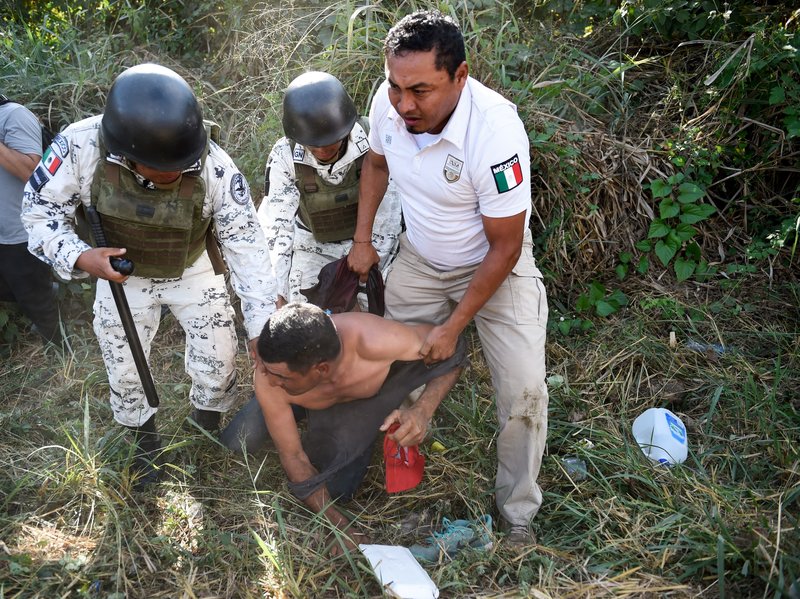The last two weeks have been busy for Mexico’s immigration authorities. Since Jan. 18, the Mexican government says it has “assisted returns” of 2,303 Central American migrants back to their home countries.
“Assisted returns” means deported — but much of the official language referring to migration in Mexico remains euphemistic, critics say, even as the government’s migration policies have grown harsher.
Mexico has been under pressure from the Trump administration, with threats of tariffs and sanctions, to do more to stop U.S.-bound migrants. Last week, Acting Deputy Secretary of Homeland Security Ken Cuccinelli praised Mexico for its most recent efforts.
Nearly all those deported were Honduran, and most were part of a large caravan that had entered Mexico illegally, with hopes of reaching the U.S. Mexican officials say all the deportations were done according to law and with full respect for human rights.
Advocates for migrants dispute this and say they are worried about Mexico’s new, increasingly draconian policies toward those fleeing chronic poverty and violent gangs. But the toughness of these policies isn’t immediately obvious when listening to the language used by Mexican officials, including President Andrés Manuel López Obrador.
In his daily morning press conferences, the president describes the mass deportations of Central Americans as “assisted returns.” Foreign Secretary Marcelo Ebrard, the administration’s point person on immigration matters, uses the same term and corrects reporters who don’t.
















More Stories
The most valuable passport in 2023
Mexico wins Miss Universe 2021
As Coronavirus Spreads, U.S. Students In China Scramble To Leave
Russian Prime Minister Dmitry Medvedev, entire Cabinet resign
Trump says Iran appears to be ‘standing down’ after strike
Israel braces for bitter fight after Netanyahu indictment